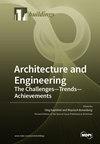为数字时代的房地产专业毕业生做好准备:从澳大利亚房地产教育工作者的角度看挑战与策略
IF 3.1
3区 工程技术
Q2 CONSTRUCTION & BUILDING TECHNOLOGY
引用次数: 0
摘要
房地产专业毕业生的就业准备是全球讨论的主题,随着雇主要求专业人员具备基本角色和数字技术方面的能力,这一差距日益突出。虽然这些问题已经从学生、毕业生和雇主的角度进行了探讨,但房地产学术界的见解仍未得到深入探讨。因此,本研究深入探讨了澳大利亚房地产学术界在为数字时代培养房地产专业毕业生方面所遇到的挑战,以及为实现这一目标而采取的策略的有效性。本研究通过在线问卷调查收集了 22 位房地产学者的意见,并通过平均得分、相对重要性指数 (RII) 和探索性因子分析 (EFA) 进行了分析。从受访者的情况来看,约有一半的受访者拥有不超过五年的行业经验,只有 54.5% 的受访者目前正在从事该行业的工作。最主要的挑战包括采购定制软件的资金有限,以及没有足够的时间实现数字化能力。此外,学者们认为大学提供的支持有限也是一项主要挑战,但他们认为课程僵化并不重要。在策略方面,对学者进行数字能力再培训、增加大学的技术支持、采用主动式学习以及修订课程以纳入数字技术至关重要。与行业伙伴合作和增加软件采购资金也是关键的外部因素。这些看法的差异还表明,年长的学者不太愿意接受再培训,拥有更多行业经验的学者认为需要对课程进行重组,而规模较小的机构则需要更多的资金和行业支持。拟议战略的核心主题还表明,需要对课程进行全面整合,以纳入所有利益相关者的观点。实际上,这些研究结果强调了学术界在缩小技能差距方面的关键作用,以及毕业生、大学和行业合作伙伴之间的相互联系。本文章由计算机程序翻译,如有差异,请以英文原文为准。
Preparing Property Graduates for the Digital Age: Challenges and Strategies from the Perspective of Australian Property Educators
The work readiness of property graduates is the subject of global discourse and is an increasingly critical gap as employers demand professionals with competencies in their fundamental roles and digital technologies. Although these issues have been explored from the perspectives of students, graduates, and employers, the insights of property academics remain unexplored. As such, this study delved into the challenges encountered by property academics in Australia concerning the training of property graduates for the digital age, as well as the efficacy of strategies used to achieve this. The opinions of 22 property academics were gathered through an online questionnaire survey and analysed through mean scores, relative importance index (RII), and exploratory factor analysis (EFA). The profile of respondents suggests that approximately half of them have no more than five years of industry experience, and only 54.5% currently engage with the industry. The most significant challenges include limited funding to procure bespoke software and insufficient time to achieve digital competency. Furthermore, academics cited limited support from the universities as a key challenge, but rated curriculum rigidity as non-pertinent. Regarding strategies, retraining academics for digital proficiency, increased technical support from universities, adopting active learning, and revising curricula to incorporate digital technology are critical. Collaboration with industry partners and increased funding for software procurement also emerged as key external factors. Variations in these perceptions also suggest that older academics are less receptive towards retraining, academics with more industry experience believe that a restructuring of the curricula is required, and smaller institutions require more funding and industry support. The core themes of the proposed strategies also indicate that holistic curricula integration is required to incorporate the perspectives of all stakeholders. Practically, these findings underscore the pivotal role of academics in bridging the skills gap and the interconnected roles of graduates, universities, and industry partners.
求助全文
通过发布文献求助,成功后即可免费获取论文全文。
去求助
来源期刊

Buildings
Multiple-
CiteScore
3.40
自引率
26.30%
发文量
1883
审稿时长
11 weeks
期刊介绍:
BUILDINGS content is primarily staff-written and submitted information is evaluated by the editors for its value to the audience. Such information may be used in articles with appropriate attribution to the source. The editorial staff considers information on the following topics: -Issues directed at building owners and facility managers in North America -Issues relevant to existing buildings, including retrofits, maintenance and modernization -Solution-based content, such as tips and tricks -New construction but only with an eye to issues involving maintenance and operation We generally do not review the following topics because these are not relevant to our readers: -Information on the residential market with the exception of multifamily buildings -International news unrelated to the North American market -Real estate market updates or construction updates
 求助内容:
求助内容: 应助结果提醒方式:
应助结果提醒方式:


